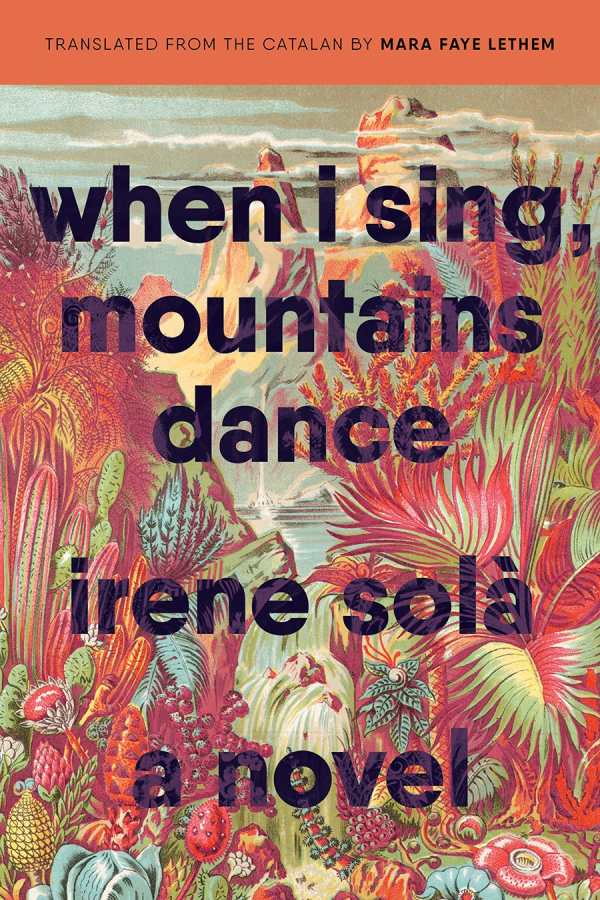When I Sing, Mountains Dance
Cobbling together the story of a place from local lore, fairy tale remnants, and natural memories, Irene Solà’s novel When I Sing, Mountains Dance is intoxicating.
Homesteads dot a mountain high in the Pyrenees, climbing up to a village whose residents have weathered wars and tragedies, knit together by the myths and memories of their shared pasts. Among the village’s generations of healers, poets, butchers, and giants, there dwell spirits and sprites who interact with the populace. In one age, lightning strikes a moody farmer, whose foraged goods then feed the ghosts of women accused of witchcraft; the farmer’s wife, once a city dweller, has to reconstruct her future in the wake of her loss. The space opened by her mourning is filled by the witches’ musings, which themselves give way to the memories of the woodland fauna, and of the mountain itself; later, the farmer’s children encounter new challenges as they traipse into the modern age.
The novel’s poetics are of a primordial sort, encompassing both geographical upheavals and the detritus left behind by outside conflicts. A girl struggles with her uncommon coming of age, pulling dead grenades from the river and pretending that the couple she spies on is magical; disaster befalls friends out on a hunt. Visitors arrive, romanticizing the locals; the locals resist their clumsy inveigling, knowing that visitors fade.
Though the story shifts with each chapter, musing on the gifts and limitations of life on the mountain from various perspectives, it always flows back into a traceable line. Happiness and sorrow are complex prospects in these wilds, where history only passes through; and even as the mountain dwellers cling to the heirlooms of their singular place, the mountain itself anticipates their eventual dispersion. When I Sing, The Mountains Dance is an uncommon novel set in a singular place.
Reviewed by
Michelle Anne Schingler
Disclosure: This article is not an endorsement, but a review. The publisher of this book provided free copies of the book to have their book reviewed by a professional reviewer. No fee was paid by the publisher for this review. Foreword Reviews only recommends books that we love. Foreword Magazine, Inc. is disclosing this in accordance with the Federal Trade Commission’s 16 CFR, Part 255.

